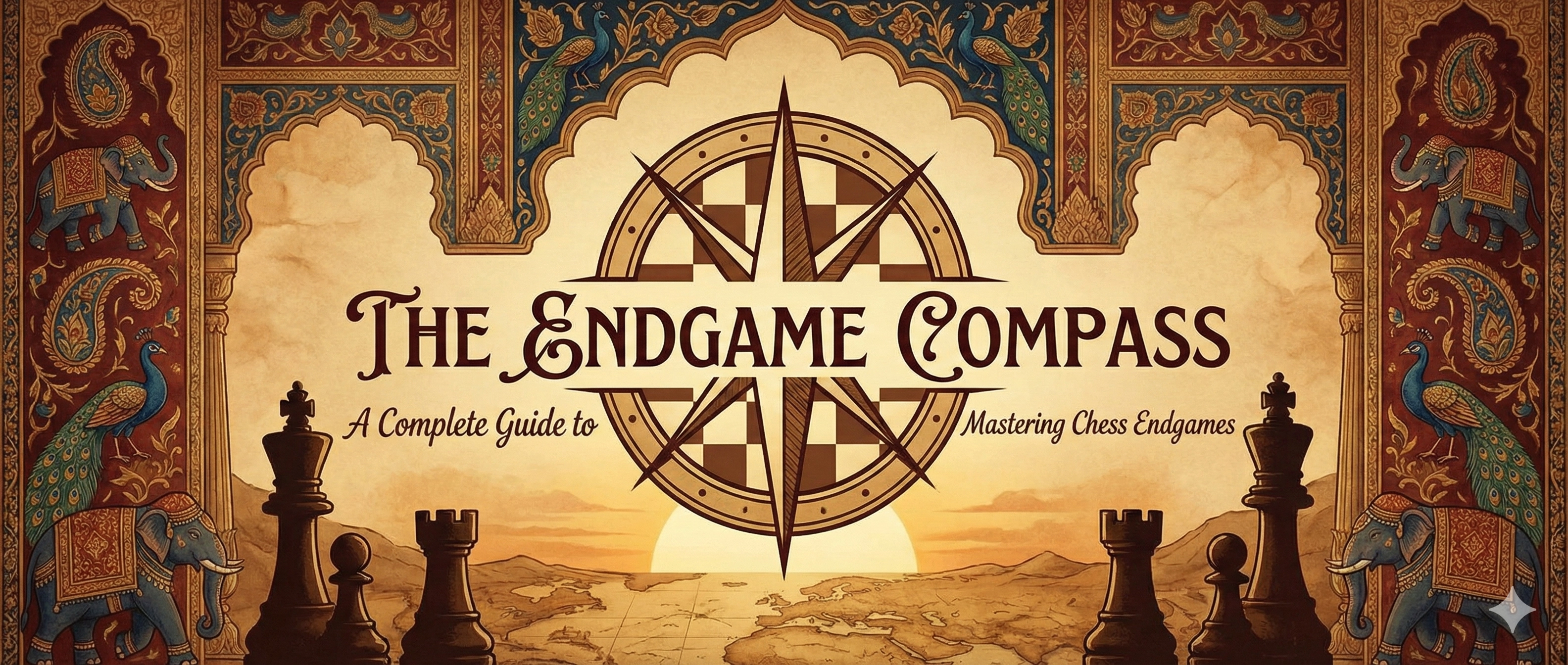I know you've played 1. e4, or played against e4 uncountable times because that's what beginners do. I'm sure even Magnus Carlsen used to open with e4 when he was a beginner (yeah, at the age of 5).
The problem isn't playing badly against e4, but it's not knowing how to strategically respond against e4. Beginners do win games, and it's mostly by shooting in the dark.
So, why gamble at chess when you can learn the black openings against e4 and win the upcoming tournaments?
Best Chess Openings for Black Against e4
1. e5

When I first started playing chess, my natural reply to 1.e4 was e5 and I wasn’t alone. History shows this has been the go-to response for centuries. In fact, the earliest chess openings book, the Göttingen Manuscript, listed 12 openings, and 8 of them began with 1.e4 e5.
Why is e5 a good move against e4?
It counters white's authority in the center
Black can control the center
Black can find pathways to develop its pieces
1…e5 is the classical move against 1. e4, and you must know the openings it leads to. So, let's get started with 1. e4 e5 openings.
>>>Ruy Lopez Opening, the Main Line variation (3. Bb5 a6) It's one of the oldest chess openings, mentioned in the Göttingen manuscript. If white responds with 2. Nf3, then your best shot is Ruy Lopez opening. It's also called the Spanish opening or the Spanish game. The moves are: 1. e4 e5 2. Nf3 Nc6 3. Bb5 a6 (Main line variation)

The recommended Ruy Lopez variations for Black are
Marshal Attack: 1.e4 e5 2.Nf3 Nc6 3.Bb5 a6 4.Ba4 Nf6 5.O-O b5 6.Bb3 Be7 7.Re1 O-O 8.c3 d5
Morphy defense, closed, Martinez Variation: 1.e4 e5 2.Nf3 Nc6 3.Bb5 a6 4.Ba4 Nf6 5.O-O Be7 6.d3 Be7
The Arkhangelsk Variation: 1.e4 e5 2.Nf3 Nc6 3.Bb5 a6 4.Ba4 Nf6 5.O-O b5 6.Bb3 Bc5
>>>The Italian Game |
Giuoco Piano (3. Bc4 Bc5) Giuoco Piano is a variation of the Italian game. Its moves are similar to the Ruy Lopez opening:
1. e4 e5 2. Nf3 Nc6
In the third move, if white plays 3. Bc4 instead of Bb5, then, it's the "Italian game." The moves are:
1. e4 e5
2. Nf3 Nc
3. Bc4
Black must play 3…Bc5 to reach Giuoco Piano opening. The series of moves are: 1. e4 e5 2. Nf3 Nc6 3. Bc4 Bc5

Giuoco Piano is one of the most effective defenses against 1. e4. It is also seen in top-level games.
>>>Philidor Defense in favor of black (3. d4 exd4)
This defensive opening is named after François-André Danican Philidor, as he suggested 2…d6 instead of 2…Nc6.
The initial moves are:
1. e4 e5
2. Nf3
d6 Next, white challenges black with 3. d4. Now, black plays 3…exd4 to counter the power white exerts in the center.
The series of moves to play Philidor defense in favor of black are:
1. e4 e5
2. Nf3 d6
3. d4 exd
4. Nxd4 Nf6
5. Nc3 Be7

2. c5

1…c5 is equally popular amongst club players and top-level players. 1. e4 c5 is known as the Sicilian defense.
It's one of the primary defense strategies that every chess player must learn. If you learn the Sicilian defense and its variations (favoring black), then you're more likely to win as black, as its winning percentage is quite high.
According to chess database, around 4857 games opened with the Sicilian defense between 1620 and 2022.
In the games opened with Sicilian defense, Black's winning stat is 39.9%, white's 34.4%, and 25.7% of games ended in a draw.
Why should you play the Sicilian defense (c5)?
One should play Sicilian defense because:
c5 counters white in the center by attacking the d4 square.
It imbalances power and positions in the center.
Play c5 brings the best advantages against 1. e4.
Keep reading to find the best variations of Sicilian defense for black.
>>>Najdorf Variation Chess
Legends like Bobby Fischer, Garry Kasparov, and Magnus Carlsen have all relied on the Najdorf Variation to score countless victories with the Black pieces. Widely regarded as one of the most dynamic and respected defenses in chess, the Najdorf is a cornerstone of the Sicilian Defense.
The move sequence goes as follows:
1. e4 c5 2. Nf3 d6 3. d4 cxd4 4. Nxd4 Nf6 5. Nc3 a6
With the flexible pawn move …a6, Black prevents White’s pieces from landing on b5 and keeps options open for counterplay on both the queenside and in the center. The result is a rich, complex position full of tactical and strategic possibilities-perfect for fighting players.

>>>Dragon Variation
I usually don't recommend Dragon variation to beginners, as it requires a good grip in chess theory. However, if you still plan to play this variation, please go through the possible lines.
The initial moves to play Sicilian, Dragon variation are: 1.e4 c5 2.Nf3 d6 3.d4 cxd4 4.Nxd4 Nf6 5.Nc3

Till now, the moves resemble Najdorf variation. Next, black plays g6 instead of a6, and you've reached the Dragon variation. The series of moves to win as black are:
1.e4 c5
2.Nf3 d6
3.d4 cxd4
4.Nxd4 Nf6
5.Nc3 g6
6. e3 Bg7
7.f3 Nc6
8.Qd2 O-O
9. Bc4 Bd7
10. O-O-O Rc8
11. Bb3
The other popular Sicilian defense variations for black are: Scheveningen variation:
1.e4 c5
2.Nf3 d6
3.d4 cxd4
4.Nxd4 Nf6
5.Nc3 e6
Sveshnikov variation:
1.e4 c5
2.Nf3 Nc6
3.d4 cxd4
4.Nxd4 Nf6
5.Nc3 e
Kan variation: 1.e4 c5 2.Nf3 e6 3.d4 cxd4 4.Nxd4 a6
3. e6
e4 e6 is popularly known as the French defense.

The initial moves are 1. e4 e6 2. d4 d5 Next, the lines vary in 4 ways depending on what white plays. So, let's see what black's moves in each of the four variations are.
>>>French, Tarrasch Open Variation (3. Nd2 c5)
The initial moves are the typical French defense moves: 1. e4 e6 2. d4 d5 Next, white plays the Tarrasch variation by playing 3. Nd2 instead of the usual 3. Nc3. Now, black attacks the white pawn center by playing 3…c5. It also helps the second player gain space on the queenside.

The series of moves are: 1. e4 e6 2. d4 d5 3. Nd2 c5
>>>Advance Variation (3. e5 c5)
When white plays 3. e5, you've reached French defense, Advance variation. In recent times, the most fruitful line for black is playing 5...Nh6

The reason is that it opens up an opportunity for 6.Bxh6 gxh6 that gains black a semi-open g-file to attack the White king. The series of moves are 1. e4 e6 2. d4 d5 3. e5 c5 4. c3 Nc6 5. Nf3 Nh6
>>>Exchange Variation (3. exd5)
Black often finds it extremely difficult to win against the French defense opening because of its closed structure and symmetrical positions. Therefore, breaking the symmetry with the early exchange can be a good option for black.
It may also open up chances to win the game. The initial moves are the typical French defense moves: 1. e4 e6 2. d4 d5 Then comes the exchanges 3. exd5 exd5. In this situation, white will play 4. Bd3 to reach an advantageous position.

Next, it's in the hands of the second player if black wins or reaches a draw. If black gets tempted to an early check, then it will go ahead with 4…Bb4 and end with a draw:
1. e4 e6
2. d4 d5
3. exd5 exd5
4. Bd3 Bb4+
5.Nc3 Nf6
6.Bd3 O-O
7. Ne2 dxc4
8.Bxc4 Nbd7
9. O-O Nb6
10.Bb3c
However, if white plays 4. Nf3 instead of 4. Bd3, then, has more chances to win. The moves are: 5...Nf6 6. O-O O-O 7.Bg5 Bg4 8.Nbd2 Nbd7 9.c3c6 10.Qc2 Qc7 10...Re8? 11.Bxh7+ 11. h3 Bh5 12.Rfe
>>>Delayed Exchange Variation

In the Delayed Exchange variation, the exchange happens in 4. exd5 The initial moves are 1. e4 e6 2. d4 d5 3. Nc3 Nf6 4. exd5
4. d6
e4 d6 is quite a famous opening in the chess world.
You will find many grandmasters extensively using it. For instance, Vladimir Kramnik was a fan of this opening. The most famous opening with 1. e4 d6 is Pircs's defense.


Why play Pirc's defense?
To level up your defense against 1. e4
To defend black without directly confronting the white central pawns.
It opens up safer and systemic pathways for black.
>>>Pirc's defense, Classical variation (4. Nf3)

In this variation, white busies itself with the pawn structure by putting pawns at e4 and d4. Soon, black Black castles and builds a compact structure. The series of moves are: 1.e4 d6 2.d4 Nf6 3.Nc3 g6 4.Nf3 Bg7 5.Be2 0-0 6.0-0
>>>The Austrian Attack (4. f4)

The Austrian attack was one of the aggressive weapons Bobby Fischer used regularly. The series of moves are: 1.e4 d6 2.d4 Nf6 3.Nc3 g6 4.f4 Bg7 5.Nf3
5. d5

1. e4 d5 is the famous Scandinavian defense. It helps black manipulate the center and attack the white king's pawn. The series of moves are: 1. e4 d5 2. Exd5 Qxd5
6. Nf6

Known as Alekhine's defense, 1. e4 Nf6 is one of the finest responses against e4. The legendary Alexander Alekhine opened the game with Nf6 in the 1921 Budapest tournament against Endre Steiner and Fritz Sämisch.
Therefore, it's named Alekhine's defense. The best moves are: 1.e4 Nf6 2. e5 Nd5 3. d4 d6 4. Nf3 Bg4


Conclusion
Dear readers, as e4 is one of the most common moves in chess tournaments and games, you must be prepared to face it. Go through the above black openings against e4 and win the upcoming tournaments without any trouble.
FAQs
1. How do I choose a good opening against e4?
There is no one-size-fits-all answer to this question, as the best opening against e4 will vary depending on your playing style and how you strategize to win. However, some general tips are:
Attack practically and play aggressively.
Try to break any symmetry white's trying to maintain.
Try to control the central space. Pick an opening that will help you achieve all the above points.
Pick an opening that will help you achieve all the above points.
2. What's the most aggressive opening for black against e4?
The most aggressive opening for black against e4 is Najdorf variation, Sicilian defense. The series of moves are: 1.e4 c5 2.Nf3 d6 3.d4 cxd4 4.Nxd4 Nf6 5.Nc3 a6
3. Which one is better: 1...e5 or 1...c5?
Both 1...e5 and 1…c5 have the potential to win the game. Some chess players consider 1…e5 to be the stronger move, as it helps black to take up the center space and develop the pieces.
However, 1...c5 has its perks. It's ferocious and imbalances power in the center. Ultimately, it is important to analyze the game situation and make a decision based on that.






Comments